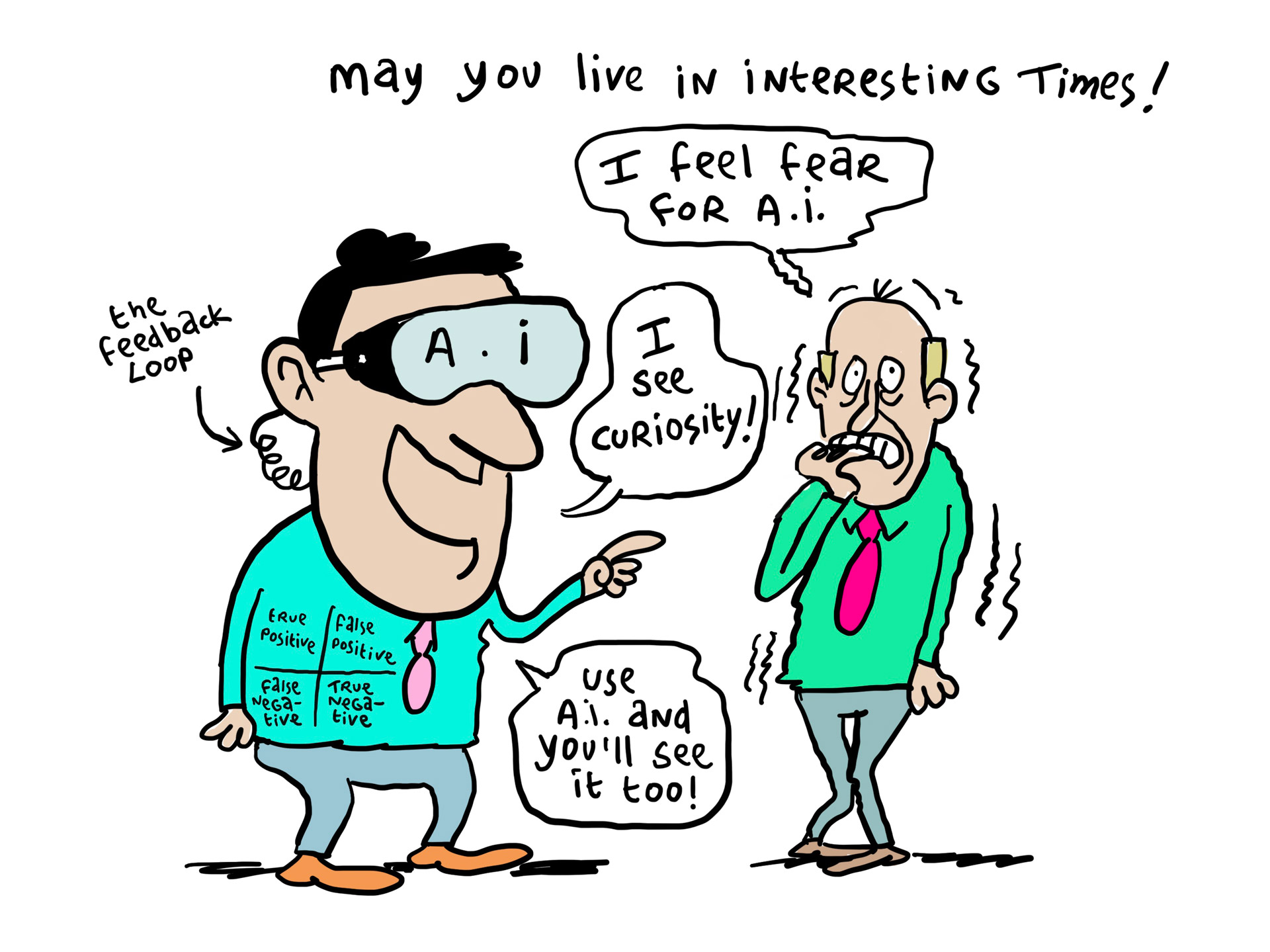Beyond hype and fear: how to embrace AI as a purely practical tool

Beyond hype and fear: how to embrace AI as a purely practical tool
The use of AI by companies suffers from unrealistic expectations and mystifications. This sometimes causes disappointment and at times even fear of what is essentially a practical data science tool. AI expert Wouter Denayer of consultancy firm Briteflo explained at Flanders Make's Symposium how to use artificial intelligence smarter to optimise business performance.
After a long career with top companies, including seven years as CTO at technology giant IBM, Wouter Denayer now helps companies with their digital transformation with his own consultancy firm Briteflo. Artificial intelligence (AI) is obviously crucial in that digital transition, but unfortunately there are still many misunderstandings about it, which hinders effective implementation.
The AI Monitor 2022 study conducted by Denayer in collaboration with CIONET, a networking organisation for digital leaders, showed this. To do so, Denayer interviewed 23 digital leaders in Belgium to gain insight into the critical success factors that enable them to achieve concrete results for their organisation with AI.
"The first question concerned their strategy around AI," Denayer told us. The conclusion of that round-up proved sobering. "You can sum that one up as: 'nobody cares about AI'." There was a lack of interest because of two reasons. "Some didn't see the added value of it, for their sector. They are clearly wrong, AI will have an impact everywhere." For others, it was more nuanced. "They were not interested in the technology itself, the practical finer points, but rather in what the innovative technology could concretely mean for their business."

Away from anthropomorphic vision
A major stumbling block to the effective deployment of AI is the hype created around it. This sometimes leads, following the example of greenwashing, to 'AI-washing'. Denayer gave the example of a so-called AI-controlled coffee machine, which, with the necessary marketing tricks, gives the impression that you are bringing in a kind of personal robotic barista. "While that coffee machine only stores certain preferences of the user. This is nonsense," Denayer said.
High expectations are also far from being met around self-driving vehicles with AI, on public roads anyway. "In a controlled environment, in a factory for example, you can successfully integrate self-driving vehicles with AI. But of course, it is an illusion to think that everything in your factory can be automated."
Another problem is that AI sometimes gets the aura of technology really thinking like a human. Last summer, a Google engineer was fired for believing that a chatbot with AI had become truly sentient. Dystopian future images of evil robots that will take over the world are also popping up all too often. "We need to get away from that anthropomorphic vision of AI, this is a computer programme without feelings, an innovative way of programming. We will always need humans to ask the right questions."
Realistic expectations regarding accuracy
Companies also often have unrealistic expectations about the precision you can achieve with AI. For example, one multinational refused to put an information extraction system into production because the recognition accuracy was not the 98% that those in charge thought they needed. "Because of their inflated expectations, they missed out on great benefits for their business," Denayer told us.
The AI expert also gave some good examples, of companies that achieved significant results with a pragmatic approach. For example, one company was able to reduce its manual work by 20% by using an information extraction system with "only" 50% accuracy. "And using a similar system, which had an accuracy of 65%, the University Hospital Antwerp reduced the duration of a migration project from five to a year and a half." Manual validation remained necessary, but everything went so much more smoothly because the intelligent systems helped people find the right information faster.
Use of pre-trained models
Denayer also gave concrete tips on how to implement AI properly. For instance, it is important to always feed results back into your AI system so that it can learn from its mistakes and become smarter. It is also a good idea to create a practical checklist to make it easier to consistently integrate AI into a project's daily operations.
"It is also not necessary to invest heavily in creating your own AI models," Denayer argued. "You can also use pre-trained models developed by big players like Google, and adapt them to your specific needs. "
Denayer also advocated not throwing away results of projects, even if they do not yet prove useful in the present. "Something that doesn't work today may do so tomorrow. Those results may prove very useful in the future, because the world of AI is changing very fast. Just look at the strong evolution in the document recognition domain, for example."
Importance of continuing to experiment
To use AI, you obviously need data scientists. But not only are these not easy to find, many also quit relatively quickly because their companies are not using their capabilities to their full potential and too much time creeps into routine work such as 'cleaning' data.
"It is important that data scientists can continue to experiment. An effective concept in this sense is that of 'business of play', where you encourage people to playfully try things out in a business context. AI is also pre-eminently a 'game' where experimentation is important. Because it is a lot harder than with more traditional techniques to predict the outcome of a project with AI."
Finally, Denayer would prefer not to speak of AI anymore, but of 'data science'. "That is a clearer term, without confusing science fiction connotations," he told us. "In general, it's high time people took off their dark or rose-coloured glasses, and looked at this practical tool with a neutral perspective."
This presentation was part of Flanders Make's Symposium, the annual event where (inter)national speakers present the technology trends that will shape the future of the industry. The 2022 edition was all about the path to 'a sustainable, digital and competitive industry'.
